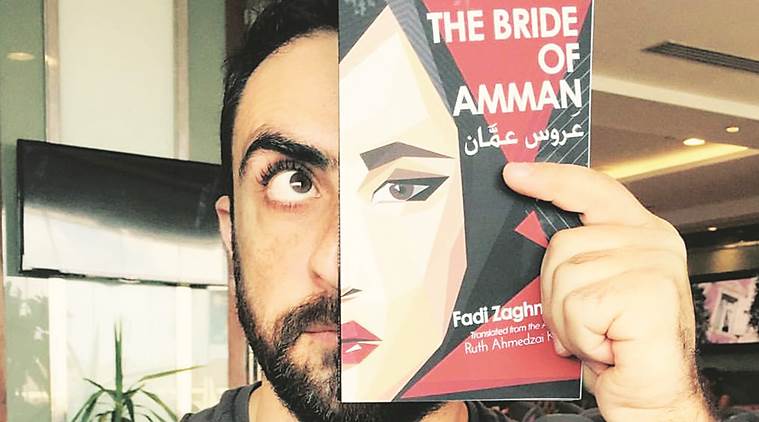Breaking Barriers
Jordanian author Fadi Zaghmout on his popular blog The Arab Observer and writing on subjects considered taboo in his homeland

Author Fadi Zaghmout
IN 2006, Jordanian author Fadi Zaghmout started a blog that discussed issues pertaining to individualism and sexual freedom in the Arab society. The blog, written predominantly in English, proved popular among Arab netizens as it delved into social issues that were not addressed traditionally by the media in Jordan. However, when he decided to write his debut novel a few years later, Zaghmout turned to his mother tongue — Arabic. According to him, the decision was an outcome of his urge to contribute to the discourse in his local language, when there weren’t many liberal voices.
Though the blog was a convenient tool to spread ideas, it had limited audience. “I felt the blog was limiting with regard to the audience I wanted to reach. Since the issue of sexual freedom and body rights was highly censored in Jordan before the internet, I thought maybe I can explore the same themes I talk about on my blog using traditional media. I wanted these discussions to be printed in a book in Arabic to reach more people. The transition wasn’t easy but during my years of blogging I practised writing short stories and short film scripts, which helped me compile a list of ideas and themes that helped me write Aroos Amman (The Bride of Amman),” says Zaghmout in an email interview. The UAE-based author will be in Pune next week for the Pune International Literary Festival.
The novel proved to be an instant success and also raked controversies for dealing with taboo themes such as homosexuality, inter-religious marriage and more freedom to women, among others. The novel has five main characters — four of these are women, each with her own predicament, and a gay Muslim man who is married to a woman — with each trying to cope with the societal pressure to conform to their gender roles. It looks at the institution of marriage as a means to regulate sexuality, which is seldom successful. It critiques the Arab society for still following age-old beliefs, expecting a woman to be a virgin before marriage, while a man is responsible for building and maintaining the household.
While women readers wrote to him saying the book is a source of strength for them, some even went to the extent of calling it their “personal constitution”. The novel’s portrayal of women and their eternal struggle to claim lost ground has earned Zaghmout a sobriquet, from those who hate his work: the feminist mouthpiece. “I take it as a compliment. I really love it when a woman calls me and asks how can I be very accurate in describing the emotions of women. Having said that, to me it is more than being a ‘female mouthpiece’, it is about social justice. I am a mouthpiece for gender equality, sexual freedom and body rights that help us all live a better life. I believe that strict gender roles are harmful for both men and women equally,” he says.
Since Bride of Amman, Zaghmout has written two more novels, Heaven on Earth (2017) and Laila and the Lamb (2018). The latter features a “sexually dominant” woman as its protagonist. As per reports, Jordianian authorities saw it as a work with “a problematic premise” and stopped the entry of the book into the country. Zaghmout, however, feels that the themes and characters that populate his works come from real men and women who exist in Arab society. “There are indeed many homosexual men in Jordan and the Arab world who opt to marry a woman in order to fit in a society where homosexuality is still not accepted and same sex marriage is not legal. The same applies for women who fall in love with men from another religion, as marriage is still a religious institution in Jordan. I usually build my characters by borrowing characteristics from people I know,” he says.
On his maiden visit to India, Zaghmout hopes to learn about Indian society, which he sees as one with diverse cultures and attitudes where women may face the same prejudices as Arab women. “Although I have few Indians friends in UAE, I am yet to know more about Indian society. I have the impression that India is a large country with diverse cultures and attitudes. I understand that patriarchy is a dominant force across modern cultures and I can see that Indian women face many of the same prejudices Arab women are facing these days, especially the pressure to get married and adhere to strict gender roles,” says Zaghmout.
Zaghmout will be a panel member discussing “Dynamics of Family Across Cultures” on September 28 at PILF, to be held at Yashada Campus, Baner Road






















No hay comentarios:
Publicar un comentario